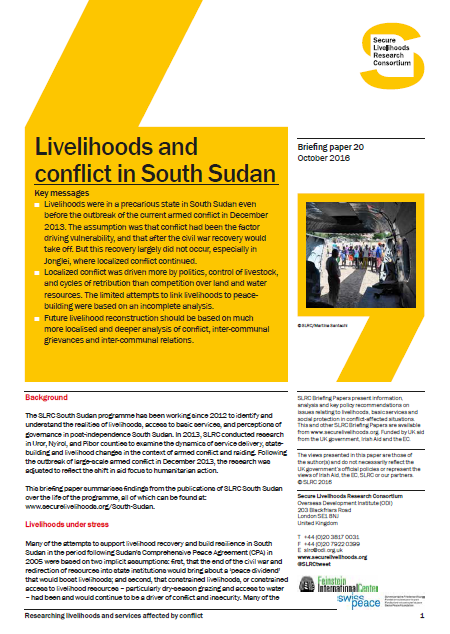More than five million people in South Sudan are currently in urgent need of humanitarian aid, with nearly one-and-a-half million displaced and another one million refugees. These figures indicate large-scale loss of lives and extreme disruption to livelihoods, which will take decades or generations to recover from. Yet livelihoods are often just expected to recover in a post-conflict environment. Findings from six years of research by the Secure Livelihoods Research Consortium do not support this argument; in some areas of South Sudan, support for livelihoods may have even been better during conflict. This briefing paper recommends a rethink in the way that aid actors approach questions of recovery and livelihoods in South Sudan. Rather than a simplistic either/or approach, what is needed is a much more localized and deeper analysis of conflict, inter-communal grievances, and inter-communal relations.
The Secure Livelihoods Research Consortium (SLRC) is a six-year, eight-country research study, led by the Overseas Development Institute (ODI) in London. SLRC investigates livelihoods, access to basic services, and social protection in fragile and conflict-affected situations. The research is funded by the UK Department for International Development (DfID), Irish Aid, and the European Community (EC). The Feinstein International Center leads SLRC research in South Sudan and Uganda in addition to its participation in the Sierra Leone research.







